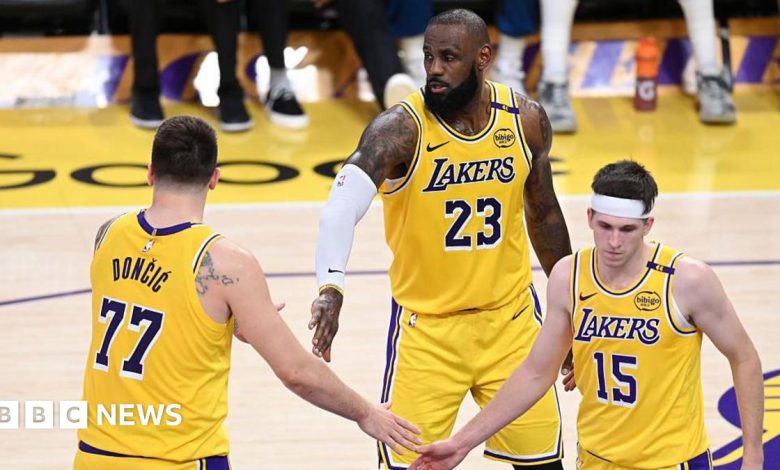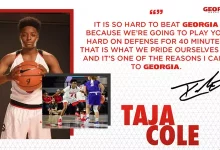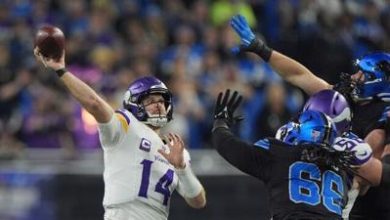The LA Lakers are set to be sold in a record-breaking $10 billion deal, marking the most expensive sports franchise sale ever.

In the world of professional sports, few franchises carry the global prestige, history, and cultural influence of the Los Angeles Lakers. Known for their legendary roster of players, iconic championships, and cultural significance, the Lakers are more than just a basketball team—they are a global brand. Recently, news broke that the Lakers are set to be sold in a staggering $10 billion deal, shattering previous records for sports franchise sales and signaling a new era in the valuation of sports assets.
This historic transaction not only underscores the Lakers’ immense value but also reflects broader trends in sports economics, media rights, brand power, and the evolving landscape of sports ownership. In this comprehensive analysis, we explore the background of the sale, its significance within the sports industry, the factors driving such a high valuation, and the potential implications for the Lakers, the NBA, and the broader sports and entertainment ecosystem.
The Background: Lakers’ Heritage and Market Power
A Storied Franchise
The Los Angeles Lakers, founded in 1947 in Minneapolis, moved to Los Angeles in 1960, and since then, they have become one of the most successful and recognizable teams in NBA history. With 17 NBA championships (tied for the most in league history with the Boston Celtics), a roster of legendary players like Magic Johnson, Kareem Abdul-Jabbar, Shaquille O’Neal, Kobe Bryant, and LeBron James, and a global fan base, the Lakers epitomize excellence and glamour.
The franchise’s brand transcends basketball, embodying Hollywood-star glamour, luxury, and a cultural iconography that resonates worldwide. The Lakers’ association with Los Angeles’ entertainment industry, coupled with their success on the court, has cemented their status as a premier sports franchise.
Ownership History
Over the years, the Lakers have been owned by influential figures, most notably Jerry Buss, whose family owned the team from 1979 until 2013. Under Buss’s leadership, the Lakers became an entertainment spectacle and a symbol of Los Angeles luxury and success. After Jerry Buss’s passing, the franchise was sold to a consortium led by billionaire businessman Jeanie Buss, Jerry’s daughter, who has managed the team since.
Current Ownership and Sale Announcement
The upcoming sale signifies a major shift in the franchise’s ownership structure. While specific details about the buyer remain under wraps, the sale price has been reported at around $10 billion — a figure that surpasses previous records for sports franchises.
This sale will set a new benchmark for the valuation of sports teams, not only because of the Lakers’ storied history but also because of the current economic climate, media rights deals, and the strategic value of sports assets in a global entertainment landscape.
Why Is the Lakers’ Sale Price So High?
Several factors contribute to the Lakers’ record-setting valuation:
1. Brand Equity and Global Fanbase
The Lakers are among the most recognizable sports brands worldwide, with an estimated global fanbase in the hundreds of millions. Their historic success, star power, and media presence have cultivated a brand that transcends sports, making them highly valuable in both traditional and new media markets.
2. Revenue Streams and Financial Performance
The Lakers generate significant revenue from ticket sales, merchandise, sponsorships, and media rights. Their lucrative local broadcasting deals, along with national television contracts, contribute substantially to their income. Furthermore, the franchise’s association with Hollywood and entertainment enhances its commercial appeal.
3. Media Rights and Streaming
The NBA’s media rights deals have skyrocketed in recent years, and the Lakers benefit from lucrative local and national rights. As streaming platforms like Amazon Prime, Apple TV, and others increase their sports content investments, franchises like the Lakers become even more valuable assets.
4. NBA’s Global Popularity and Market Dynamics
Basketball’s rising global popularity, especially in markets like China, Europe, and Africa, enhances the Lakers’ international appeal. This global footprint makes the franchise an attractive investment, capable of generating revenue from international licensing, merchandise, and exhibition games.
5. The Sports Investment Boom
Globally, sports teams have become some of the most sought-after assets for billionaires and institutional investors. The COVID-19 pandemic underscored the importance of media rights, digital engagement, and brand value, all of which have driven up franchise valuations.
6. The Los Angeles Market
Los Angeles is one of the world’s most valuable media and entertainment markets. The Lakers’ location in LA adds to their allure, with proximity to Hollywood, luxury brands, and a wealthy demographic.
Implications of the $10 Billion Sale
A. Setting a New Benchmark
This sale will redefine the valuation of sports franchises worldwide. Previously, the most expensive sports team sales hovered in the $3-4 billion range, with the Manchester United sale reaching approximately $4.3 billion. The Lakers’ $10 billion valuation more than doubles that figure, signaling a dramatic shift in how sports assets are valued.
B. Impact on the NBA
The NBA’s stature as a premier global sports league is reinforced by such a high valuation. The sale underscores the league’s commercial strength, international appeal, and media rights value. It could lead to increased franchise valuations across the league, potentially prompting other owners to seek higher sale prices or new investment.
C. Investor and Ownership Dynamics
The sale may attract high-net-worth individuals, celebrities, and entertainment moguls interested in owning a piece of one of the most iconic sports franchises. It could also influence future ownership models, including minority stakes or joint ventures that blend sports, media, and entertainment interests.
D. Strategic Opportunities
New ownership could leverage the Lakers’ brand to expand into new markets, develop content, and create innovative fan engagement strategies. They might invest in digital platforms, international outreach, and partnerships with entertainment entities, further amplifying the franchise’s value.
E. Broader Sports and Entertainment Industry Impact
The record-breaking sale exemplifies the convergence of sports, media, and entertainment. It highlights the increasing monetization of sports franchises as global entertainment properties, not just athletic teams.
Challenges and Considerations
Despite the excitement and potential, such a high-profile sale also presents challenges:
1. Maintaining the Franchise’s Legacy
New owners will need to balance commercial ambitions with preserving the Lakers’ storied legacy and cultural significance.
2. Managing Expectations
With a $10 billion valuation, expectations for performance, branding, and revenue growth will be high. Owners must navigate fan sentiment, player relations, and media scrutiny carefully.
3. Regulatory and Market Risks
Global economic fluctuations, geopolitical tensions, and changes in media consumption habits could impact future revenue streams and franchise value.
4. Potential for Overvaluation
While current metrics support the high valuation, skeptics may question whether the Lakers’ worth is sustainable in the long term, especially if market conditions shift or if team performance declines.
The Future of the Lakers and Sports Franchise Valuations
This historic sale is more than just a financial transaction; it’s a symbol of how sports franchises have evolved into multi-billion-dollar entertainment conglomerates. The Lakers’ valuation reflects a convergence of factors: global fandom, lucrative media rights, strategic branding, and the allure of Los Angeles.
Looking ahead, the Lakers’ new ownership will likely focus on expanding their global footprint, leveraging digital and social media, and capitalizing on the franchise’s cultural significance. They may also explore innovative revenue streams, such as virtual reality experiences, international tours, and exclusive content deals.
Moreover, this sale could inspire a wave of high-value transactions across sports leagues worldwide. As the sports industry continues to grow in prominence and profitability, franchises like the Lakers will remain at the forefront of this transformation.
The impending sale of the LA Lakers for a staggering $10 billion marks a watershed moment in sports history. It highlights the exponential growth in the valuation of sports franchises driven by global branding, media rights, digital engagement, and entertainment convergence. As the most expensive sports franchise sale ever, it sets a new benchmark, signaling a future where sports teams are not just athletic entities but powerful, multifaceted global brands.
For fans, investors, and industry insiders, this development underscores the increasing importance of sports as a dominant force in global entertainment. The Lakers’ new ownership will have the opportunity—and the challenge—of maintaining their legendary status while innovating to stay ahead in an ever-evolving industry. Ultimately, this sale exemplifies how sports continue to transcend the game, becoming emblematic of culture, luxury, and international influence.









